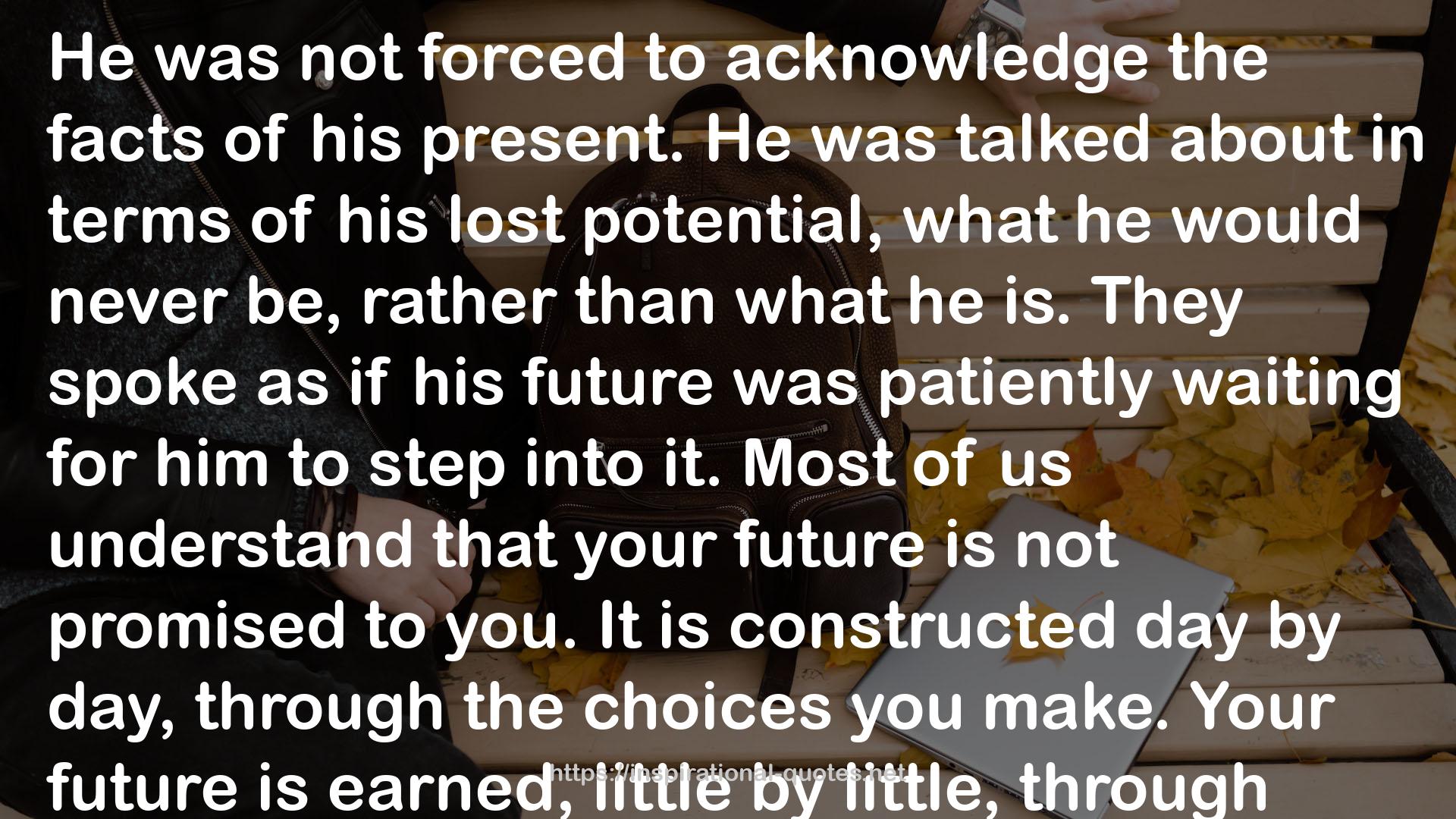" He was not forced to acknowledge the facts of his present. He was talked about in terms of his lost potential, what he would never be, rather than what he is. They spoke as if his future was patiently waiting for him to step into it. Most of us understand that your future is not promised to you. It is constructed day by day, through the choices you make. Your future is earned, little by little, through hard work and action. If you don't act accordingly, that dream dissolves.
If punishment is based on potential, privileged people will be given lighter sentences. Brock was shielded inside projections of what people like him grow up to become, or are supposed to become...The judge argued that he'd already lost so much, given up so many opportunities, What happens to those who start off with little to lose? Instead of a...Stanford athlete, let's imagine a Hispanic nineteen-year-old working in the fraternity kitchen commits the same crime. Does this story end differently? Does the Washington Post call him a surgeon?
My point can be summed up in the line Brock wrote: I just existed in a reality where nothing can go wrong or nobody could think of what I was doing as wrong. Privilege accompanies the light skinned, helped maintain his belief that consequences did not apply to him. "
― Chanel Miller , Know My Name
